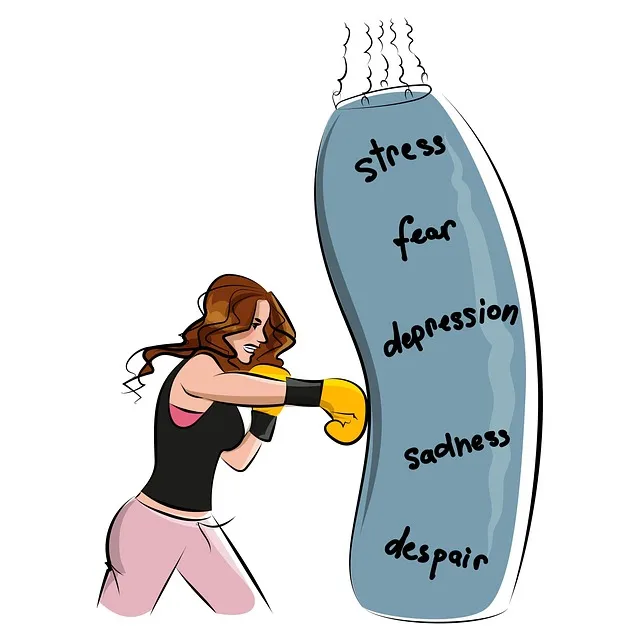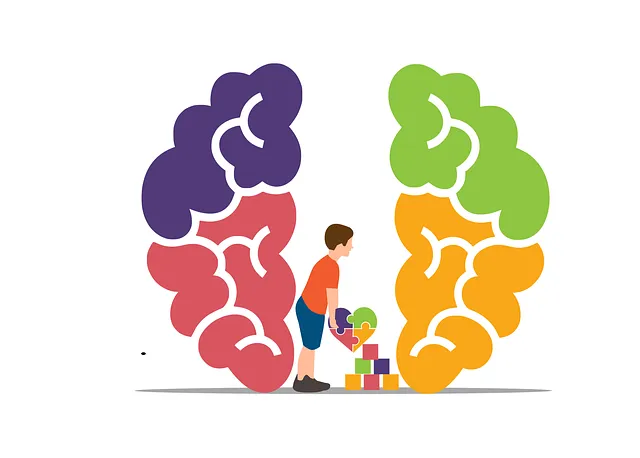Boulder Kaiser Permanente's behavioral health services reviews highlight the success of Resilience, Flexibility, and Mastery (RFM) exercises in improving patient mental wellness. By integrating tailored workshops, podcasts, and initiatives, they foster resilience among both patients and healthcare providers. These reviews emphasize personalized curricula, inclusive environments, and feedback-driven continuous improvement, ensuring programs meet diverse needs. Boulder Kaiser Permanente sets a standard for holistic mental health awareness in the healthcare sector through their innovative behavioral health services.
“Resilience is a cornerstone of mental well-being, especially in demanding healthcare environments. This article explores the power of RFM (Resilience, Flexibility, and Mobility) in enhancing behavioral health services, drawing insights from Boulder Kaiser Permanente’s innovative approach. We delve into their comprehensive resilience-building exercises, highlighting successful implementation strategies. Through case studies and expert reviews, we examine how these programs impact employee well-being and patient care outcomes, offering valuable lessons for healthcare organizations seeking to improve their behavioral health services.”
- Understanding RFM and its Impact on Behavioral Health Services
- Boulder Kaiser Permanente's Approach to Resilience Building Exercises
- Implementing Effective Resilience Training Programs
- Measuring Success: Reviews and Continuous Improvement at Kaiser Permanente
Understanding RFM and its Impact on Behavioral Health Services

At Boulder Kaiser Permanente, behavioral health services reviews consistently highlight the significant impact of RFM (Resilience, Flexibility, and Mastery) exercises on patient outcomes. These evidence-based practices target the root causes of stress, anxiety, and mental health challenges by fostering coping skills development. By integrating RFM into their programs, Kaiser Permanente in Boulder has seen improvements in overall mental wellness coaching programs development. The approach encourages individuals to navigate life’s complexities with enhanced resilience, a key factor in preventing and managing conditions like depression and anxiety relief.
Understanding RFM involves recognizing its ability to equip individuals with the tools to adapt to change, regulate emotions, and gain a sense of control over their lives. This proactive approach contrasts with traditional treatment methods that often focus on managing symptoms after they arise. Incorporating RFM into behavioral health services at Kaiser Permanente in Boulder has led to more effective and lasting solutions, addressing both the physical and psychological aspects of wellness for a holistic healing experience.
Boulder Kaiser Permanente's Approach to Resilience Building Exercises

Boulder Kaiser Permanente has pioneered an innovative approach to resilience building exercises, integrating them into their behavioral health services. This holistic strategy recognizes the growing importance of mental wellness and aims to equip healthcare providers with effective burnout prevention strategies. Through a series of carefully designed workshops and initiatives, they foster an environment that promotes not just professional resilience but also personal well-being.
Their method includes engaging activities tailored to address common challenges faced by healthcare workers. From mindfulness practices to stress management techniques, these exercises are incorporated into the Mental Wellness Podcast Series Production, providing accessible resources for ongoing learning and development. By combining individual wellness with organizational support, Boulder Kaiser Permanente sets an example for effective public awareness campaigns focused on mental health in the healthcare sector.
Implementing Effective Resilience Training Programs

Implementing Effective Resilience Training Programs involves a strategic approach tailored to individual needs, as highlighted in Boulder Kaiser Permanente behavioral health services reviews. These programs go beyond traditional therapy by incorporating diverse techniques such as Social Skills Training and Trauma Support Services to foster resilience. The goal is to equip individuals with tools to navigate stress, adversity, and trauma, enhancing their ability to bounce back and lead fulfilling lives.
Key elements of successful implementation include personalized curricula, inclusive environments, and regular practice sessions. By integrating Empathy Building Strategies, these programs not only strengthen individual coping mechanisms but also promote understanding and connection within communities. Effective resilience training acknowledges the unique experiences of each participant, ensuring that the strategies learned are applicable and impactful in their daily lives.
Measuring Success: Reviews and Continuous Improvement at Kaiser Permanente

At Kaiser Permanente, measuring success goes beyond simple numbers. Their behavioral health services reviews are a testament to their commitment to continuous improvement and patient-centric care. Regular assessments involve gathering feedback from both patients and healthcare providers, providing valuable insights into the effectiveness of various therapies and interventions.
These reviews focus not just on outcomes but also on the journey, ensuring that services like Depression Prevention programs, Compassion Cultivation Practices, and Conflict Resolution Techniques resonate with those who need them most. By fostering an environment where open dialogue is encouraged, Kaiser Permanente aims to refine its approaches, making behavioral health support more accessible and impactful for the diverse population it serves in Boulder and beyond.
The implementation of RFM and resilience-building exercises within behavioral health services, as exemplified by Boulder Kaiser Permanente’s innovative approach, holds significant promise for enhancing patient well-being. By integrating these programs, healthcare providers can create a supportive environment that empowers individuals to navigate life’s challenges more effectively. The success of such initiatives is evident in the positive reviews from Boulder Kaiser Permanente and similar institutions worldwide. Continuous improvement through rigorous evaluation ensures that these programs remain tailored to meet the evolving needs of those seeking behavioral health support.






